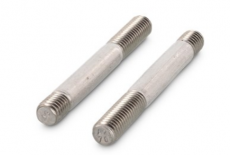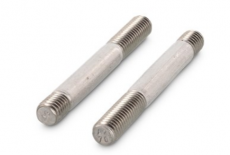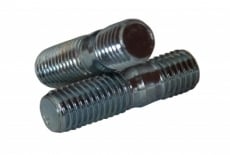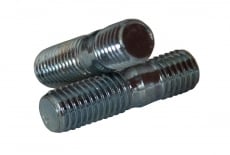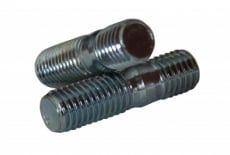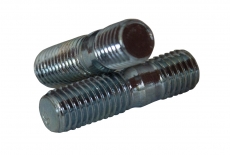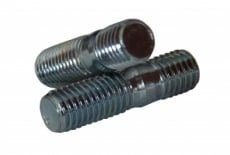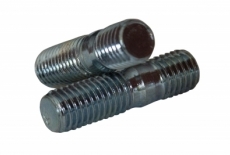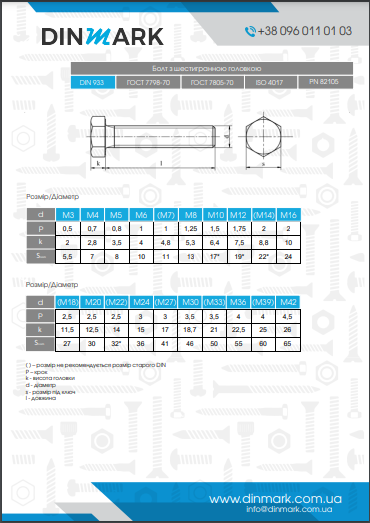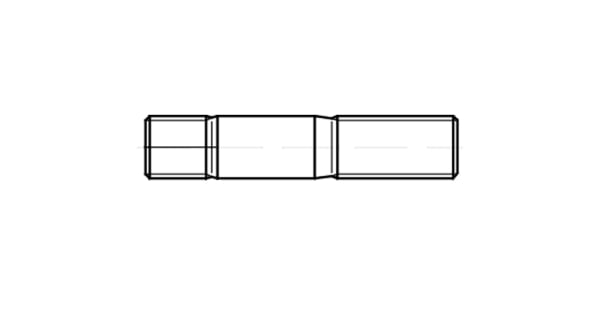
DIN 939 is a standard that describes threaded studs with a female end thread. Studs that comply with this standard have a thread diameter tolerance of 1.25d. This means that the thread diameter can differ from the nominal value by +/- 1.25 times. For example, if the nominal thread diameter of a stud is 10 mm, then the permissible thread diameter can be within 10 mm +/- 1.25 mm, i.e. from 8.75 mm to 11.25 mm.
Strength class DIN 939
The strength class of a DIN 939 stud is the maximum applied force at which the stud begins to fracture. DIN 939 studs are manufactured in strength classes from 5.6 to 8.8. From strength class 8.8, the stud is considered high-strength.
DIN 939 fastening group
Depending on the material of manufacture, DIN 939 studs are divided into groups:
- Stainless fasteners
- High-strength fasteners
Materials for the manufacture of DIN 939 studs
DIN 939 studs are made of the following materials:
- Steel with a strength class of 5.6 to 8.8, which can optionally be coated with zinc. Zinc (Plated) protects against corrosion if the fasteners are to be used in aggressive environments.
- Stainless steel grades A2 and A4. The steel grade allows the fasteners to be used at significant temperature fluctuations and in aggressive and humid environments.
Application range of DIN 939 studs
DIN 939 studs are used in such industries as the automotive industry, instrumentation, and large studs are also actively used in construction, in the installation of metal structures and wood elements.


